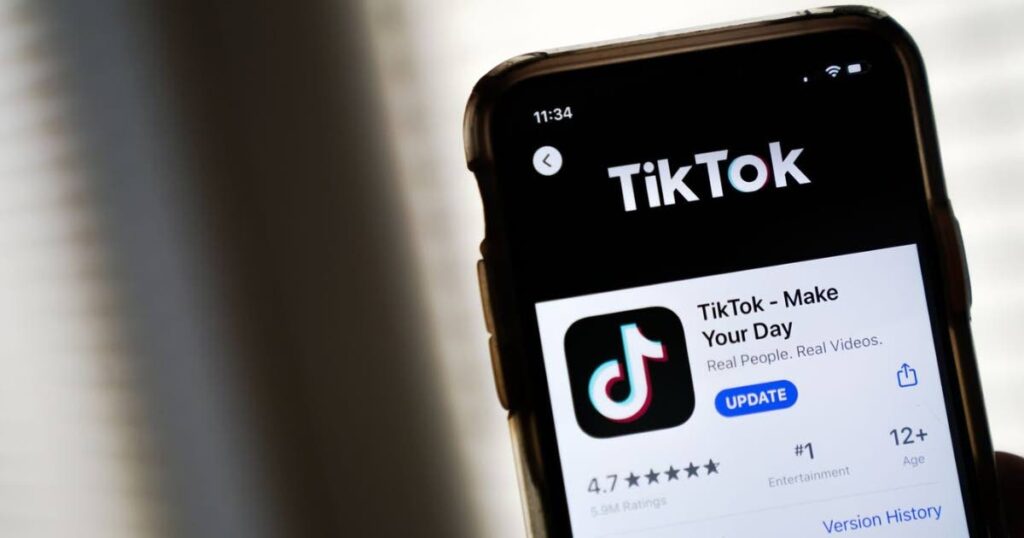TikTok ban: Its impact on the Caribbean

The looming TikTok ban in the US has sent shockwaves through the digital world, with creators and businesses scrambling to prepare for a potential shutdown.
As the Supreme Court’s final decision approaches on whether or not to uphold the ban, it’s essential to understand the reasons behind the ban, the lessons it offers and the steps we must take to future-proof our digital ecosystems. This column explores these topics and offers actionable strategies to ensure your digital presence is never platform-dependent.
The writing was on the wall
The TikTok ban didn’t come out of nowhere. Since 2023, discussions about the platform’s potential risks have been widespread.
In April 2024, the US government passed a law requiring ByteDance, TikTok’s parent company, to sell its US operations or face a nationwide ban by January 19.
This law stems from national security concerns, particularly fears that TikTok could share user data with the Chinese government under Chinese law.
The overwhelming support for the ban in Congress highlights the gravity of these concerns.
In March 2024, the US House of Representatives voted 352-65 in favour of the ban, followed by the Senate's approval with a 79-18 majority.
Despite this, many creators and businesses failed to take the warning seriously, relying solely on TikTok as their primary platform.
Why governments are concerned
The US government’s primary concerns include.
· Data privacy: Chinese laws require companies to share data with the government, raising fears of potential misuse of sensitive information like location and browsing habits.
· Espionage risks: TikTok could allegedly be used for spying on the US and its allies, officials, military personnel and critical infrastructure.
· Influence operations: The platform’s algorithm may be leveraged to sway public opinion or suppress content critical of China.
Other countries, including Canada, Australia and members of the EU, are closely watching the US actions and may follow suit if the ban is upheld.
This global ripple effect underscores the need for creators and businesses to diversify their digital presence.
Lessons for businesses and creators
The potential TikTok ban is a stark reminder of the risks of being platform-dependent.
Social media platforms are rented spaces and their rules can change overnight.
To build a resilient digital presence you must focus on creating a brand ecosystem that prioritises owned platforms.

What is a brand ecosystem?
A brand ecosystem includes.
· Owned platforms: Websites, email lists, SMS lists, podcasts and push notification systems.
· Social media: Platforms like Instagram, YouTube Shorts and Facebook Reels to engage and attract new audiences.
· Content synergy: A strategy that funnels social media traffic back to owned platforms, ensuring you control your audience’s experience.
By diversifying your presence across these channels you can reduce your reliance on any single platform.
Steps to adapt and prepare
If TikTok has been your primary platform, here’s how you can adapt.
· Backup your content: Use tools like TokBackup to save your TikTok videos.
· Repurpose content: Migrate videos to other platforms like YouTube Shorts, Instagram Reels and Facebook Reels.
As of October 2024, YouTube Shorts now allows videos up to three minutes, making it an excellent alternative for TikTok creators.
· Explore new platforms: Platforms like Threads are gaining traction for meaningful engagement and discussions.
· Build owned assets: Focus on growing your e-mail list, SMS list and website traffic to ensure you can reach your audience directly.
Impact on the Caribbean
A TikTok ban in the US would make the app unavailable on Google Play and Apple App Stores globally, posing unique challenges for the Caribbean.
Many creators and businesses rely on TikTok’s reach to connect with the diaspora, a significant portion of their audience.
If TikTok becomes inaccessible in the US, much of this audience will be lost, reducing discoverability and engagement.
For businesses, TikTok’s algorithm has been a powerful tool for discovery. Without it, companies may hesitate to invest in creators solely reliant on the platform, impacting both creators and businesses in the region. The Caribbean music industry, heavily dependent on TikTok for international exposure since covid19, will also need to find new ways to promote its artists globally.
Embrace change and innovate
The digital landscape is ever-evolving and change is inevitable.
This isn’t the first time a platform has faced significant challenges or disappeared entirely. Remember Vine, Periscope or MySpace?
Each platform had its moment but eventually faded, leaving creators who failed to diversify scrambling.
The key takeaway from the TikTok saga is this – resilience comes from adaptability.
Whether or not TikTok survives, the lessons it offers are invaluable. Focus on building a community that thrives beyond any single platform.
Your business’s success shouldn’t hinge on the fate of a social media app.
Final thoughts
The TikTok ban, whether upheld or overturned, serves as a wake-up call for creators and businesses.
It’s time to prioritise owned platforms, diversify content strategies and prepare for an unpredictable digital future.
By doing so, you’ll ensure your brand not only survives but thrives, no matter what changes come your way.
Keron Rose is a digital strategist who works with businesses to build their digital presence and monetise their platforms.
Learn more at KeronRose.com or listen to the Digipreneur FM podcast on Apple podcast, Spotify, or Google podcasts.

Comments
"TikTok ban: Its impact on the Caribbean"